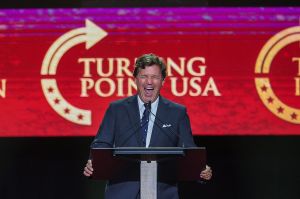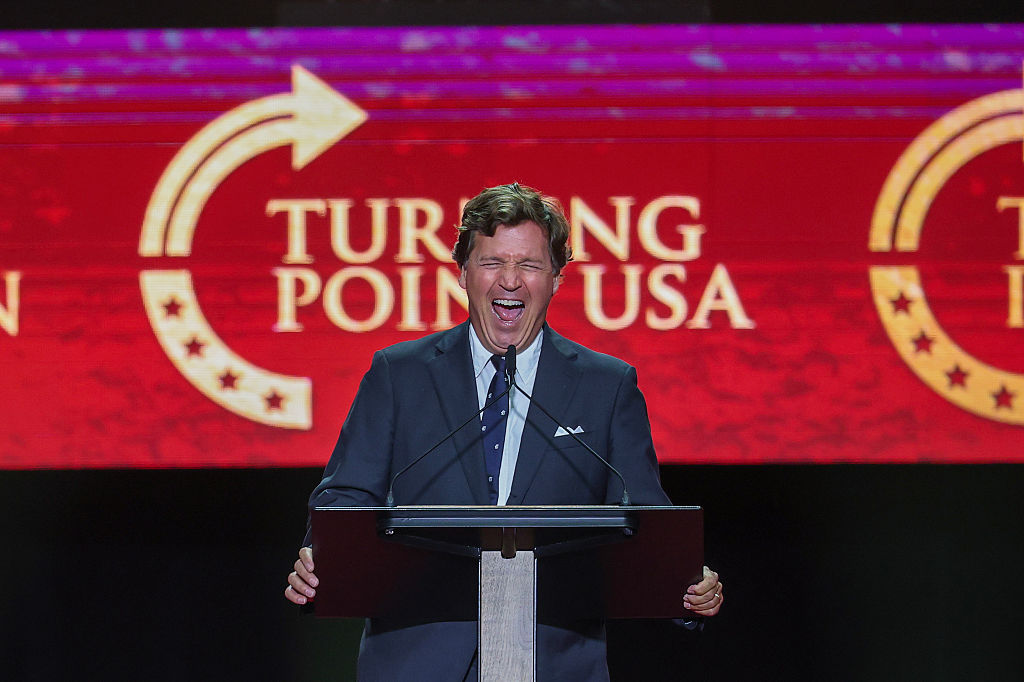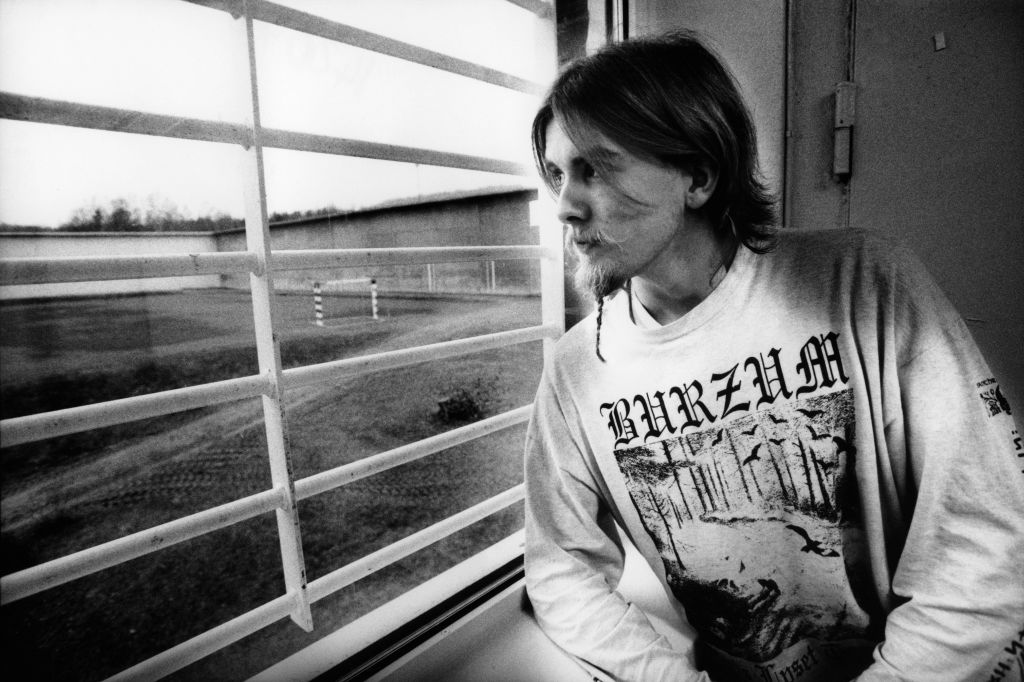Even though American culture warriors of the right are fighting what Tolkien called ‘the long defeat’, surrender in the Battle of Chick-fil-A was a monumental symbolic loss. That’s because the fast-food chain had become what psychology calls a ‘condensation symbol’: a phrase or entity that powerfully evokes a worldview, and usually calls forth strong emotions around it.
Chick-fil-A sells fried chicken. When are chicken nuggets not mere morsels of battered and fried chicken? When LGBT activists transform them into sacraments of Bible-thumping wickedness, as they have done with enormous effectiveness since 2012. That was the year that Dan Cathy, CEO of the privately held company and son of its founder, criticized the campaign for same-sex marriage as offensive to God. The Cathy family are conservative Evangelicals and through Chick-fil-A’s charity arm gave millions to Christian organizations that progressives condemned as homophobic.
Though Cathy publicly regretted his remarks, and Chick-fil-A stopped donating to organizations fighting gay marriage, leftwing campaigners demonized the chain constantly. In some cities, protesters turned up at the opening of Chick-fil-A stores, drawing negative media coverage for the company. Local politicians attempted to ban the restaurant. In England earlier this year, a landlord, under pressure from progressive activists, announced that he would not renew the lease of Britain’s first Chick-fil-A.
Yet the company’s business has not suffered. To the contrary, it has more than doubled since 2012 and in the US lags behind only McDonald’s and Starbucks in sales (this, despite that fact that the Cathy family mandates Sunday closure). The reason is obvious to anyone who has eaten at a Chick-fil-A. The food is delicious, the stores immaculately clean and the staff legendarily courteous. What’s more, Chick-fil-A is known for generous pay and benefits to its employees, something uncommon in the fast-food industry.
Chick-fil-A, then, demonstrated admirable resilience in the face of left-wing attacks. This is a big reason why the chain has aroused affection and loyalty from conservative customers, Christians in particular. Chick-fil-A proved that no matter what nasty things your enemies said about you, if you held your head high and continued doing good work, you would succeed. With so many American businesses and institutions capitulating to the woke mob, Chick-fil-A’s quiet, lonely resistance was inspiring.
It all came crashing down in mid-November, when the company quietly announced it was changing its giving priorities. No longer would it donate to the Salvation Army and the Fellowship of Christian Athletes, two charities that activists slammed as gay-haters. Chick-fil-A did not say outright that it was cutting off ‘anti-LGBT’ charities, but for anyone half-literate in reading public relations statements, it was clear they were doing exactly that.
It’s hard to overstate the symbolic importance of this move. For one, Chick-fil-A’s white flag meant that it accepted the vicious slander that the venerable Salvation Army, of all organizations, is a hate group. More importantly, Chick-fil-A was not pressured by financial losses to back down. It did so from a position of strength — hence the stunning demoralization of conservatives. If even one of the great financial success stories in American retailing would not hold out against leftist campaigners, what hope do the rest of us have to thrive in a highly ideologized public square?
Mind you, Chick-fil-A’s opening toward armistice will not buy it peace. The fast-food giant will now be shaken down so hard by gay groups seeking ‘reparations’ that its corporate teeth will rattle — and that still won’t be enough. LGBT activists will not rest until they have strangled the last Evangelical wedding-cake baker with the entrails of the last homophobic farm fowl.
However, in US culture war terms, Chick-fil-A’s surrender really is a Germans-marching-down-the-Champs-Élysées moment for the right. The conflict, which roughly dates from the late 1960s, has moved from a combat phase to a life-under-occupation period. Though the craven capitulation of a Christian-run corporation as successful as Chick-fil-A must shatter the delusions of the most ardent dead-enders, in truth the culture war was definitively lost five years ago.
Big business stayed out of the culture war for half a century, reckoning sensibly enough that political controversy is bad for sales. But in 2015 that changed radically. When Indiana passed a state version of a mild federal law strengthening religious freedom, a coalition of major US corporations threatened to boycott the state unless it repealed the allegedly homophobic legislation. The law would only have created a religious liberty courtroom defense for those sued under anti-discrimination law — it certainly wouldn’t have guaranteed them victory. No matter: Big business reacted as if Indiana Republicans were building gay gulags in the American heartland.
It worked. The state’s Republican-controlled legislature, and Gov. Mike Pence, repented. Since then, corporate America has used its lobbying power to crush religious liberty legislation at the state level, and to promote progressive values (mostly, but not exclusively, LGBT activism) in the marketplace. If you want to know why the Republican party does not fight against progressive attacks on religious liberty and free speech, to say nothing of the frankly insane takeover of the medical profession by transgender activists, look no further than the moral transformation of the donor class.
The past five years have laid bare the power of corporate America as both barometer of and engine for progressive social change in this consumerist society. The emergence of woke capitalism might have delighted — but not surprised — orthodox Marxists, who recognize capitalism as a revolutionary force. But for the American right, schooled in the Reagan-era political assumption that free markets are aligned with social conservatism, it has been a stunning reversal.
The culture war is also over because the sources of the right’s soldiers and materiel are bleeding dry. The Christian religion has dramatically declined in both numbers and cultural power — old news, obviously, for the rest of the Anglophone world, but Americans have been outliers to the trend.
Though it only became clearly discernible by social scientists in the past decade, it was the early 1990s that religious belief and observance began its long slow collapse. Now a recent report from the Pew Research Center has found that 40 percent of the millennial generation — roughly, those between 20 and 40 years old — are religiously unaffiliated. What’s more, extensive research by sociologist Christian Smith at the University of Notre Dame shows that the overwhelming majority of millennials who identify as Christian have little understanding of the religion’s teachings. They are far more driven by individualism and consumerism than by doctrine. Indeed, owing to the failure of their churches and their families to catechize them, most millennials don’t know what doctrine is, or why it matters.
Old-school Christian culture warriors came of age in the era of Pope John Paul II, whose dynamic orthodoxy made Catholicism appear as a bulwark against hedonism and materialism. But the catastrophic sex abuse scandals, which began in Boston in 2002, annihilated the moral authority of the Catholic church. Today, the church is headed by a pope who recently distinguished himself by blessing an earth-mother idol in a Vatican ceremony. Conservative Catholics who have spent their lives defending obedience to the institutional church are reeling.
Mainline Protestantism is culturally negligible in contemporary America. Protestants long ago ceded political (if not cultural) influence to Evangelicals and Pentecostals. The Trump presidency, though, is tearing Evangelicalism apart. Most white Evangelicals voted for Trump, who has aligned himself closely with them. Some Evangelical and Pentecostal leaders champion their relationship with the president, a man whose moral character would have drawn their scorn in the past.
Given the growing hostility of the Democratic party to social and religious conservatism, and the GOP’s fecklessness on that score, backing Trump as a matter of self-protection is understandable. But some top Evangelicals have gone much further in their uncritical embrace of the man, discrediting themselves in the eyes of many Americans, and even a substantial number of younger Evangelicals.
The bottom line is that America is finally catching up with Europe in secularization — and internal weaknesses within the churches obviate the credibility of their moral witness to a radically individualistic culture. The liberal churches are moribund and the traditionally conservative ones are headed down the same path. It is not clear therefore where a beneficial social conservatism will come from in the future. If Americans are giving up on faith, marriage, the traditional family and childbearing (the fertility rate is cratering along with Christian sexual morality) what, exactly, is there left to conserve?
That’s not to say right-wing activism will disappear. The culture war will likely shift battlefronts from sexuality and religion to race and class. Given the racial extremism of the rising alt-right, the left’s triumph over religious conservatism may well turn into a Pyrrhic victory. As the Catholic New York Times columnist Ross Douthat has pointed out, if you don’t like the religious right, you really aren’t going to like the post-religious right.
It’s arguable that America is not losing its religion so much as replacing the old faith with a political pseudoreligion — as Europe did in the early 20th century. I would argue that the religion with the most effective political power in contemporary America is technically not a religion at all: it’s the cult of social justice. The academic critic James A. Lindsay, among others, has written at length about how militant progressives — often called ‘social justice warriors’ — and their causes have taken on the characteristics not of a political movement, but of a religion.
Conservative culture warriors used to think that the left would produce laissez-faire moral relativists. It hasn’t turned out that way. The SJWs are highly illiberal, extremely moralistic leftists focused obsessively on sex, gender and race. They are strongly motivated to exercise power against their perceived enemies. Their power derives from their support at elite universities, among fellow travelers in the media and, bizarrely, within leading corporations, who have pioneered woke capitalism as a marketing method.
The march of SJWs through American institutions is fast achieving complete hegemony. The unexpected victory of Donald Trump in 2016 is not a sign of recrudescent conservatism but, for traditionalists, actually a desperate last stand. Despite the purplish enthusiasm of conservative Evangelicals for Trump, he is properly seen as a kind of culture-war katechon — a restraining force holding back the mob. As a prominent Evangelical leader confided to me last year, ‘We know that when he goes, we’re done.’ Après Donald, le déluge.
Though signs of a post-Trump conservatism are finally emerging among Republicans — Sen. Josh Hawley of Missouri and Sen. Marco Rubio of Florida have given substantive speeches in defense of traditional moral order — the possibility of a renaissance is far-fetched. Cultural conservatism will survive only within smaller communities of believers who manage to work out ways to keep the faith alive in this new Dark Age.
The Benedictine monks of the early medieval period may offer a model from which lay Christians of our era can draw inspiration and strategy. If so, Christians await what philosopher Alasdair MacIntyre calls ‘another — doubtless very different — St Benedict’. Among the very different challenges facing a 21st-century Benedict is a world where technology gives states, corporations and institutions vastly greater capacities to surveil and control individual behavior. If you think that sounds paranoid, study the way some social-media companies now monitor speech and thought.
But perhaps the examples cultural conservatives need lie much closer to us in history: those brave few who withstood totalitarian communism without losing their religion or their culture.
Over the past several years, I have been talking to émigrés to the West from the USSR and Soviet-bloc nations who say that the things they are now witnessing here remind them of what they once fled. One prominent English academic, a defector in the 1960s, told me that the way the left, both within institutions and online, seeks to destroy personally and professionally anyone who dissents brings to mind his youth under communism. This is a distressingly common story.
I have spent much of this year traveling in former communist countries, asking former dissidents for advice on how to live under occupation by authorities who systematically crush independent thought and action. I spoke, for example, to Czechs who worked with Sir Roger Scruton in the 1980s to create underground educational initiatives that kept the western academic tradition alive outside of the Marxist universities.
And in Slovakia I spoke to the now-elderly spiritual children of Father Tomislav Kolakovic, a Jesuit who warned Slovak Catholics in 1943 that their nation would eventually fall to communism. The priest organized young Catholics into cells that studied scripture and Catholic thought, prayed together and learned strategies of covert resistance. After the 1948 communist takeover, Kolakovic’s followers became the structure of the underground Catholic church — which endured merciless persecution, but emerged victorious.
We do not have to fear Stalin 2.0. The soft totalitarianism coming fast over the horizon will be more Huxley than Orwell. But while we still have time before the Brave New World establishes itself as the unchallenged successor to the passing Christian order, traditional Christians and other cultural conservatives unwilling to surrender ought to seek another — doubtless very different — Father Kolakovic.
You watch: in five years, Chick-fil-A will be catering gratis Drag Queen Story Hours at children’s libraries. In the meantime, the rest of us have organizing work to do.
Rod Dreher is the author of The Benedict Option (2017). His book about resisting soft totalitarianism will be published this year. This article is in The Spectator’s January 2020 US edition.

























